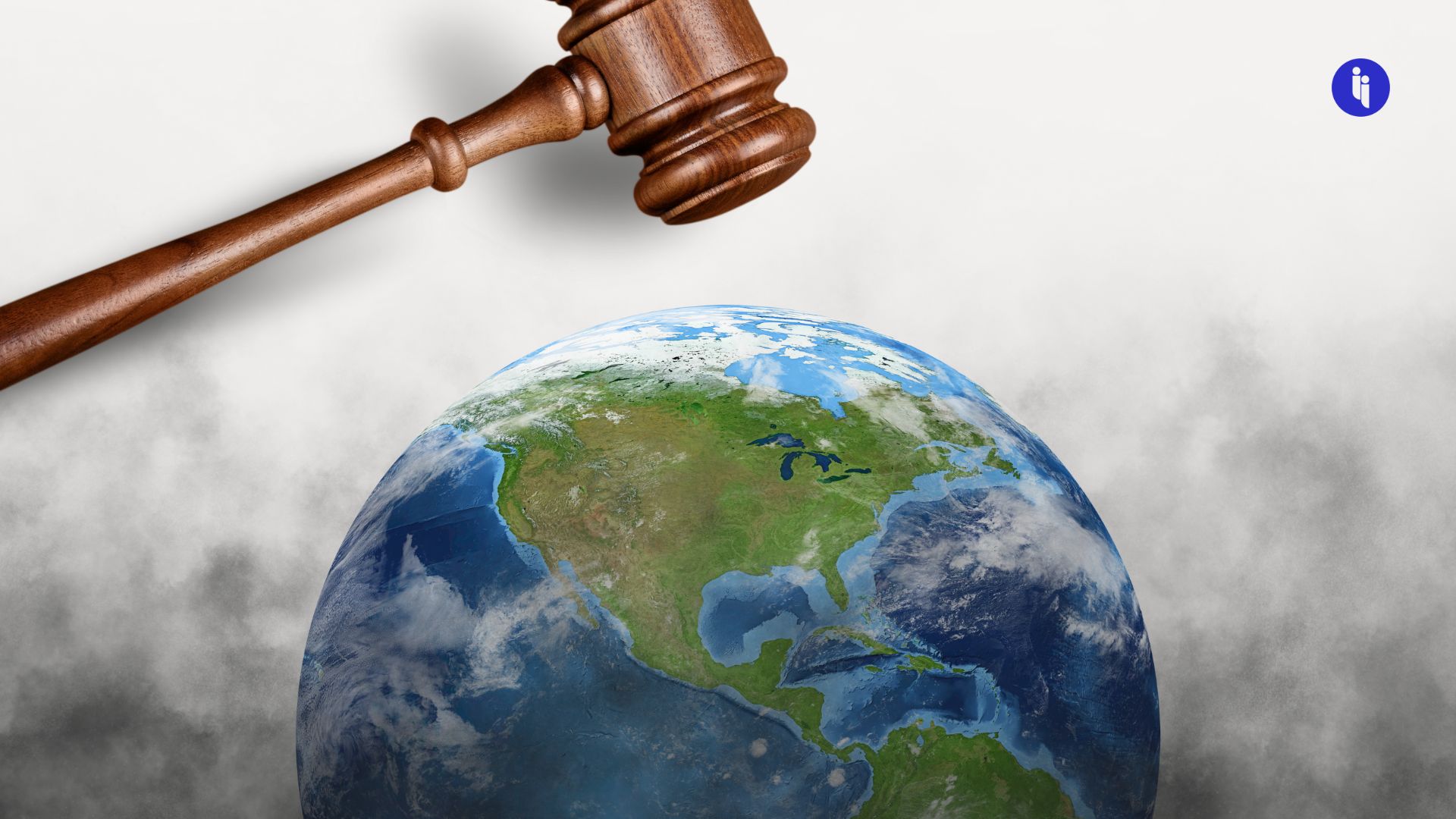The International Court of Justice (ICJ) in The Hague just weighed in on climate change, and it’s worth your attention whether you’re in the board room or the cabinet room. Or any other room, really.
The case gives off major David vs Goliath vibes because it’s been led by tiny Pacific Island nations like Vanuatu, urging (via the UN General Assembly) the ICJ to opine on a simple but profound question: what legal obligations do countries have around climate change?
The resulting 500-page advisory opinion is non-binding, and even binding ICJ rulings are unenforceable. But they’re still influential, and particularly this one: it’s the biggest ICJ case ever, with more than half the world’s capitals making statements.
Stay on top of your world from inside your inbox.
Subscribe for free today and receive way much more insights.
Trusted by 160,000+ subscribers
No spam. No noise. Unsubscribe any time.
So here are the top 5 quotes you should know:
- Climate change poses an “urgent and existential threat“ (para 73)
That’s a real escalation in rhetoric from the 15 judges. How so? They’re saying this is no longer (if it ever was) some niche, blue-haired, environmental issue, but rather a profound, urgent, and existential crisis. Existential how?
- “The protection of the environment is a precondition for the full enjoyment of human rights” (para 373)
The tiny low-lying nations leading this case gave hard evidence: Vanuatu, for example, presented first-hand testimonies and field data on its loss of arable land, while Tuvalu (2m / 6ft above sea level) warned the court, it “will not go quietly into the rising sea.“
But what does this mean for everyone else?
- “Non-compliance with emission reduction commitments by a State may constitute an internationally wrongful act” (para 221)
In other words, countries not living up to their climate commitments might be breaching international law. It’s one thing for activists to say that, but this is now the world’s top court laying it out as a possible legal foundation for countries to sue each other.
Then what about companies? Well…
- “A State may be responsible [by] not taking the necessary regulatory and legislative measures to limit the quantity of emissions caused by private actors under its jurisdiction” (para 428)
This is directed at capitals seeking to deflect blame to companies or consumers.
And the implications could be massive, with the court even listing (at para 427) fossil fuel production, consumption, exploration, and subsidies as examples of emissions-driving activities. We’re just spit-balling, but it’s not hard to imagine where this could lead: local miners exporting too much coal? Breach. Local authorities subsidising too much oil to keep prices low? Breach. Local banks financing too many new oil rigs? Breach.
And what’s a breach mean? The court flags governments might have to repair damage or even pay reparations. So to the extent these suits emerge, they’ll become a pain-point forcing capitals to rethink their own laws, or risk writing big cheques to their neighbours.
But didn’t the US pull out of the Paris Agreement…?
- “Customary obligations are the same for all States and exist independently regardless of whether a State is a party to the climate change treaties” (para 315)
This is quite a spicy line for a few reasons: first, it’s one of the ICJ’s more than 200 references to ‘customary international law‘ (CIL), which is basically all the unwritten rules that bind the world together. They’re the rules so basic, they don’t need a treaty.
Second, America’s own judge on the ICJ, Sarah Cleveland, reiterates this point too. And that’s particularly intriguing when you recall the US has now twice withdrawn from the Paris Agreement that the world negotiated to try and slow rising temperatures.
So the court (including Cleveland) is basically saying you can withdraw from all the treaties you like, but your climate obligations remain unchanged at this point. It’s CIL (though there may still be debate around the precise contours).
Oh, and the US isn’t the only country in the court’s sights here. The judges also query (para 226) whether big-emitters like China and India can shirk responsibility by claiming they’re developing nations — that depends on an assessment of reality, not claims.
Now of course, this is a non-binding advisory opinion, and nobody knows how courts and capitals around the world might interpret it. Actually that’s not true: many will ignore it.
But as the inevitable lawsuits follow, ignoring this will just get trickier (and costlier).
Intrigue’s Take
We’ve observed a few times how the whole climate discussion seems to have lost its sting lately. Gone are the days when world leaders might sit there and get publicly scolded by a Swedish teen. Gone are the days when hosting the annual COP talks might discourage a president from fast-tracking Amazon oil projects. Heck, gone are the days when hosting the COP talks might discourage a petrostate from using the summit to try selling more oil!
But we’re now seeing play out on the world stage something that’s already happened nationally: as the political route almost ground to a halt, folks in the Netherlands turned to their courts instead, resulting in a landmark 2020 ruling that found the Dutch government has a legal duty to protect its own citizens from climate change. It was a world first, and inspired a wave of other cases around the world.
Now ditto, as the international political process falters, tiny countries like Vanuatu likewise turned to the international courts. Why? Their argument has always been that while they’re emitting the least, they’re getting hit the worst. And just as with the 2020 Dutch ruling, this ICJ opinion is going to trigger a new wave of litigation as a result.
Sound even smarter:
- Several of the Pacific Island countries leading this case are now in a bid to co-host (with Australia) next year’s COP climate talks.
- You might recall Tuvalu already signed a treaty with Australia to start gradually relocating its ~10,000 citizens Down Under. Interestingly, the ICJ just found that countries still exist under law even if they disappear beneath the waves.






